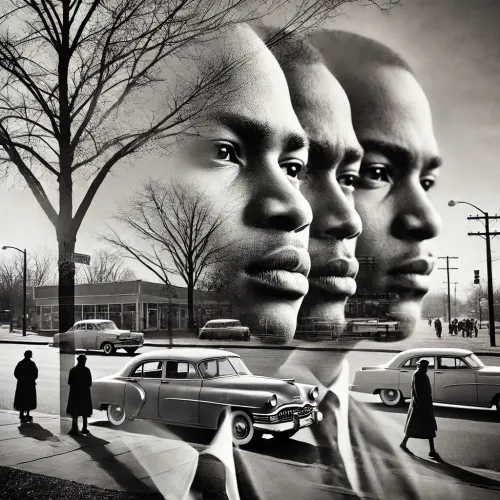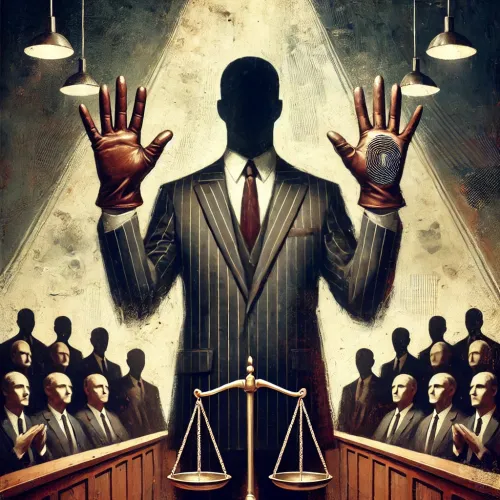The jury system is often hailed as a cornerstone of democracy, empowering ordinary citizens to serve as a check on governmental power and ensure fairness in the administration of justice. Yet, in practice, law enforcement and prosecutors exert significant influence to suppress jury discretion, particularly the right to nullify unjust laws. This suppression undermines the jury’s independence, tipping the scales in favor of the state and perpetuating systemic injustices.
Jury nullification occurs when jurors acquit a defendant despite evidence of guilt because they believe the law itself is unjust or its application is inappropriate. Historically, nullification has played a vital role in resisting oppressive laws, from defying the Fugitive Slave Act to rejecting Prohibition-era alcohol bans. Today, it remains a powerful but underutilized tool for addressing draconian sentencing laws, racial disparities, and other systemic failures in the justice system. However, law enforcement agencies and prosecutors often seek to suppress nullification, viewing it as a threat to their authority.
One of the primary ways law enforcement influences jury discretion is through the voir dire process, where potential jurors are screened for biases. Prosecutors frequently exclude individuals who express moral concerns about specific laws, ensuring that only those likely to follow the law without question are seated. This practice effectively removes independent thinkers from the jury pool, limiting the potential for nullification and ensuring compliance with the state’s agenda.
Judicial instructions further reinforce this suppression. Judges routinely instruct jurors to base their verdicts solely on the evidence presented and the legal definitions provided, omitting any mention of nullification. In some cases, judges explicitly warn jurors against considering the morality or fairness of the law. These instructions frame the jury’s role narrowly, reducing jurors to enforcers of statutes rather than arbiters of justice.
Law enforcement’s suppression of jury discretion is particularly troubling in cases involving nonviolent drug offenses and mandatory minimum sentencing laws. These laws often result in disproportionately harsh penalties that fail to consider the individual circumstances of defendants. Jurors aware of nullification might choose to acquit in such cases, recognizing the injustice of imposing severe punishments for minor infractions. However, when jurors are unaware of their power to nullify or are discouraged from exercising it, they are compelled to deliver verdicts that perpetuate systemic inequities.
This suppression of discretion also has a disproportionate impact on marginalized communities. Laws that criminalize poverty, enforce racial disparities, or disproportionately target minority groups often benefit from the unchecked authority of law enforcement. By silencing jury nullification, law enforcement shields these laws from community scrutiny, perpetuating cycles of inequality and disenfranchisement. Jurors, stripped of their ability to act as the conscience of the community, become complicit in upholding unjust systems.
Critics of jury nullification argue that it undermines the rule of law by allowing jurors to impose personal beliefs on legal outcomes. However, this perspective overlooks nullification’s critical role as a safeguard against government overreach. The legal system is not infallible; laws can be outdated, unjust, or poorly applied. Nullification provides a necessary counterbalance, ensuring that the pursuit of justice is not subsumed by rigid adherence to flawed statutes.
Moreover, the suppression of jury discretion consolidates power in the hands of law enforcement and prosecutors, eroding the jury’s role as an independent body. Prosecutors already wield significant influence through their discretion to charge defendants, negotiate plea deals, and present evidence in court. By limiting jury discretion, they further centralize authority, leaving little room for community oversight or input. This imbalance undermines the democratic nature of the jury system, transforming it into a rubber stamp for the state rather than a meaningful check on its power.
Restoring jury discretion requires empowering jurors with full knowledge of their rights and responsibilities. Judges should inform jurors of their ability to consider the fairness of the law when delivering verdicts, rather than narrowly instructing them to apply it without question. Educational campaigns, such as those led by the Fully Informed Jury Association (FIJA), can also play a critical role in raising awareness about nullification. By ensuring that jurors understand their power to challenge unjust laws, we strengthen the jury’s role as a bulwark against systemic injustice.
Additionally, reforming the voir dire process to limit the exclusion of independent thinkers would enhance the jury’s ability to reflect community values. Jurors who question the fairness of certain laws should not be dismissed simply for expressing their conscience. Instead, they should be seen as essential participants in a system that prioritizes justice over rigid enforcement.
Law enforcement’s suppression of jury discretion is a direct threat to the principles of fairness and accountability that underpin the legal system. By discouraging nullification, prosecutors and judges prioritize order over justice, silencing a critical mechanism for challenging systemic inequities. Restoring jury discretion is not about undermining the rule of law—it is about ensuring that the law serves its ultimate purpose: delivering justice.
In a democracy, the jury is not merely a passive instrument of the state; it is an active participant in the pursuit of fairness. Jury nullification embodies this principle, allowing citizens to challenge laws that fail to align with societal values or individual morality. To preserve the integrity of the legal system, we must resist efforts to suppress jury discretion and empower jurors to act as the conscience of the community. Only then can the jury fulfill its vital role as a safeguard against injustice and a defender of democratic principles.




